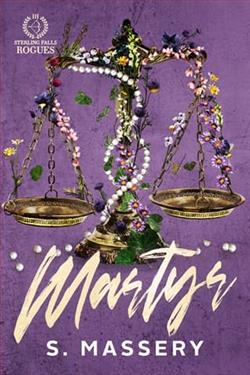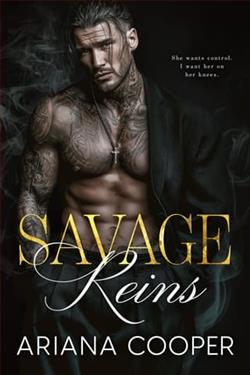Page 26 of Last Letter Home
‘His name was Harry Andrews. Not the one in the book who died in 1916. Grandpa was born in 1915. And died in 1988. I tried looking him up on the internet,’ Briony went on, seeing his interest, ‘and found he was in the Norfolk Regiment. I think he joined up in 1939 or soon after, anyway, and I know he served in Italy.’
‘Andrews, yes, that’s a name I recognize.’ The old man stopped to clear his throat. ‘Though I haven’t actually met any living ones here. This was never my parish, you see. They don’t let you retire in the place where you’ve been vicar. They think you might cause trouble with the new regime, I suppose.’ His faded blue eyes glinted with humour.
‘I didn’t know that. Have you lived in Westbury long?’
‘Fifteen years, it must be. My final parish before I retired was near Ipswich. Westbury has an interesting history, you know. One of Charles the Second’s mistresses is said to have been born at the Hall. But Andrews, Andrews. Let’s try the graveyard record.’ Briony followed as he shambled over to a table near the door where, with quivering hands, he opened a plastic folder lying there. ‘I drew this up for the rector soon after I arrived. It might offer some names that are familiar’
He fumbled past the typed pages and from a pouch at the back slid out what turned out to be a meticulous hand-drawn plan of the graveyard with Revd George Symmonds, 2002 written in tiny letters at the bottom. ‘That’s you?’ she asked when he showed it to her and he nodded with a modest smile.
‘The list is alphabetical by surname, then you cross-check the grave reference on the plan.’
Briony pulled the folder towards her and began to read the columns of names. ‘There are lots of Kellings and Foggs round here, aren’t there? But not many Andrews.’ Then she saw with sudden surprise. ‘Oh, there’s a Hartmann. Here. Barbara Hartmann. I’ve seen some letters to a Paul Hartmann.’ There was no Paul listed, though.
‘I’d forgotten about her, poor lady. From the state of her grave I fear everyone has. Except God, of course, and I suppose that’s the most important thing. Would you like to go out and look? I don’t remember mention of any Paul, though.’
Barbara Hartmann’s grave was in a secluded corner, shaded by an overhanging tree that scattered tiny shell-like blossom. The engraving on the stone slab was weather-worn, but Briony could make out most of the detail. Barbara Ann Hartmann was the lady’s full name. Then a date, 1940, and, below that, a reference to a husband.
‘Klaus Hartmann,’ George Symmonds said, peering through his spectacles. ‘According to the documents, he’s not buried anywhere in this churchyard.’
‘Maybe they were Paul’s parents.’
‘Tell me about this Paul.’
‘I was given some letters which were written to him during the war by a woman called Sarah. I think her other name was Bailey. She lived at Flint Cottage. Do you know a Flint Cottage?’
‘I do, yes. It’s further up to the left, on the other side of the road. A couple with a young family moved in recently. Nice people. He’s a GP and she’s a consultant something at the hospital.’
‘They probably won’t know about Sarah if they’re new.’
‘No, I suppose not. Do you live near here?’
She explained that she was staying at Westbury Lodge.
He nodded. ‘I drive up that way sometimes. Pastoral visits, you know.’
‘Then it must have been you I saw. Sitting in the walled garden a couple of days ago.’
‘I confess it was! I love it there. It has a particular atmosphere which I find very conducive to thought. Though I find the line between meditation and sleep to be a fine one these days.’ His eyes twinkled.
While Mr Symmonds picked the moss from Barbara Hartmann’s memorial stone, Briony wandered round the graveyard, examining the inscriptions. The centre was dominated by a large, plain catafalque fenced round with black iron palings. ‘That’s the Kelling family tomb,’ the old man called, seeing her interest. ‘What a monster, eh?’
The Andrews graves were scattered about. She bent to read the stones. Hannah, Elizabeth, Percival – the names and dates meant nothing to her, but she enjoyed a pleasant sense of connection to these possible shadowy ancestors. Despite the brisk east wind this was a beautiful place to end up, she thought, with its dancing trees and the dreaming stones.
Thanking George Symmonds, Briony walked slowly back up the lane towards the Hall. On the way, she passed a large cottage with a garden behind a flint wall. A small oblong concrete plaque set in the wall, which she hadn’t noticed on the way down, read Flint Cottage. So this was where Sarah Bailey had lived. She stopped and listened to the sounds of children playing somewhere behind the house. Then a young spaniel appeared at the gate and yapped at her, so she set off once more. She’d call in another time.
Walking under the gateway with its Great Dane statue, she heard a car turn in behind her and glanced back. It was a silver saloon with an expensive-sounding engine and when she stood to one side to let it pass, the driver stopped and lowered his window. The man was a few years older than her, with dark, unshaven looks, a little tousled, but his crisp navy jacket was as sleek as his car.
‘Morning. I hope you don’t mind me asking,’ he said, in a well-spoken voice that while polite was used to being obeyed. ‘You have business here, do you? It’s simply that this park is private.’
‘It’s all right, I’m staying close by.’
‘Oh, I see. My apologies then. We’ve had problems lately with tourists treating the place as a picnic spot and leaving litter.’
‘I’ve rented Westbury Lodge. I promise not to drop any litter.’
‘Ah. Now I’m embarrassed.’ He flashed a friendly smile, showing even white teeth. ‘In that case, hop in, let me give you a lift up the hill.’
‘It’s all right, thanks,’ she said, folding her arms in mock umbrage. ‘I was brought up not to get into strangers’ cars. Anyway, I’m enjoying the walk.’















